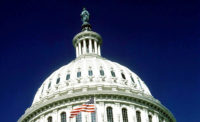Senate bill includes mental health reform

The 21st Century Cures Act, passed Wednesday by the Senate, will result in much-needed reform of the nation’s mental health system, according to the American Psychological Association (APA) and the APA Practice Organization.
“This legislation will improve the lives and health of countless Americans,” said APA President Susan H. McDaniel, PhD. “It will increase access to effective, evidence-based care, particularly for those with serious mental illness.”
The $6.3 billion legislation passed the Senate by a vote of 94-5. The House passed an almost identical version of the bill Dec. 1, by a vote of 392-26. President Obama is expected to sign the measure into law.
Essential services
APA and the APA Practice Organization have worked for the past four years to pass mental health legislation that would provide essential prevention services, treatment for populations in need and support for research, education and training. The bill passed by the Senate on Tuesday would:
- Provide $4.8 billion outside of the budget caps for initiatives at the National Institutes of Health for fiscal years 2017-2026, including $1.8 billion for cancer research, $1.56 billion for the BRAIN initiative and $1.4 billion for the Precision Medicine Initiative, which advocates personalizing patient treatment based on a combination of factors, including genetics, environment and lifestyle.
- Authorize the Minority Fellowship Program at $12.7 million to train culturally competent minority mental health professionals, reauthorize the Graduate Psychology Education Program at $15 million and include health service psychology programs and internships in a new $10 million demonstration grant program for academic programs to improve the diagnosis and treatment of mental health and substance use disorders and provide services in underserved and community-based settings.
- Eliminate the Medicaid “same day” exclusion, which prohibits separate payment for mental health and primary care services provided to a Medicaid enrollee on the same day. This change will especially benefit individuals in rural areas.
- Strengthen the enforcement of mental health parity requirements by directing the Department of Health and Human Services to produce, in coordination with stakeholders, an action plan for improved federal and state coordination, and to issue new guidance to health plans to assist them in complying with existing requirements.
- Enhance mental health and substance use treatment for children and families, including reauthorizing the National Child Traumatic Stress Network to support children recovering from trauma, and support for screening and treatment of maternal depression.
- Include provisions that address mental health issues in the criminal justice system, such as increased funding and new authority for the Justice and Mental Health Collaboration Program, law enforcement training and alternatives to incarceration.
The American Psychological Association, in Washington, D.C., is the largest scientific and professional organization representing psychology in the United States. APA's membership includes more than 117,500 researchers, educators, clinicians, consultants and students. Through its divisions in 54 subfields of psychology and affiliations with 60 state, territorial and Canadian provincial associations, APA works to advance the creation, communication and application of psychological knowledge to benefit society and improve people's lives.
Looking for a reprint of this article?
From high-res PDFs to custom plaques, order your copy today!




